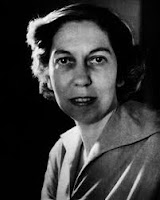To be truthful, to be honest with myself, I fear that Famepunk belongs in the worst category of all. In my secret opinion it couldn't be worse.
To me, Literary Fiction sounds awful. The words conjoined, they look okay at first and then, no, they also look awful. This is the category with the gold leaf encrusted, the greedy of glittering prizes one. Literary Fiction: boom, there it is, dropped down and stuck on alphabetical lists smack between dozens of choices where its pretentious “as-opposed-to” tone insults most writers of fiction, actually; I think the majority of us hope to be read by the ages. Here is a box I’d much rather not click—except that I’d still like to qualify as a serious fiction-writer whose work is worth reading.
It’s a quandary.
Because however putrid Literary Fiction sounds and is as a category, Famepunk is literary fiction. That is, it’s written specifically in relation and response to many other works of fiction, old & new, high & low, but especially in reaction to great literature; it’s a book about literature and about itself as literature. See, for instance, the title of Part 2. Or that in writing the many sex scenes in Middlemarch I was directly influenced by D.H. Lawrence and especially The Rainbow (banned in Britain 1915-26), and maybe too much by Joseph Conrad whom I was reading devotedly last year. Sometimes I let influences like this guide conscious choices; mostly I was being as descriptive as possible, without any particular regard to influence, of the vivid scenes in my imagination which I was taking down as best I could. But I’m a reader (movie buff, play-goer, art lover, opera-to-rock music fan) of very long standing and somehow, I believe, everything in there is emerging and recombining into Famepunk. Experience is influence, too—everything is influence. All the material is autobiographical.
Maybe for that reason, I think of Famepunk as my personal contribution to literature. Is that pretentious? I don’t know. Pathetic? I don’t think so—not in my opinion. I think I’m doing well and that my writing is clear and straightforward and not pretentious at all. I know it’s different but then I mean it to be different. I intend it to be art. Am I ambitious to be classed among the great, inspired and visionary writers? Yes. Obviously I want this. Why not? What a scandal it would be otherwise—how could I want less than this when both heroines in my novel, among their few redeeming features, are great achievers and visionaries? Should I, their creator, aspire to be less? Never.
So am I untrue to my quest, my gestalt, if I choose something “less than” Literary Fiction to define not just the book but its reason springing from within myself for being? Or can I just say, honestly, you know, I still don’t like the way it sounds, namely snooty—as in entitled—and awful. Not to mention how the label has become practically a by-word for fakery and corruption and that it’s completely impossible not to picture a world encircled by writers sitting at desks in their faculty offices, slathering one another’s review copies with rapturous blurbs. They always mention genius. I can’t embrace the category because I feel so alienated from everyone who’d feel fitted to a T, who wouldn’t even think twice. Writers who wouldn’t accept anything less than a shot at a place in the pantheon—that rogues' gallery.










No comments:
Post a Comment